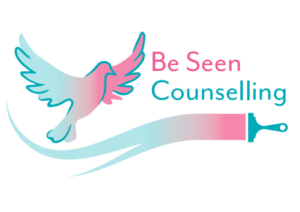Work in Progress (Song)
It ain’t easy to put imperfect on a page
Admit there’s things I need to change
To say what I’m about to say
I’ve got issues, I’m anything but figured out
And, oh, I feel much better now
That I just said those words out loud
I’m a work in progress
I’m a not quite there yet
A little rough around the edges
Yeah, it’s true
A long way from perfect
As long as He’s still working
I’m a work in progress
So, don’t give up on me yet
This world don’t need
Another hide the messes highlight reel
I’d rather be a mess if it means I’m real
They gotta see the broken to see the God who heals
I’m a work in progress
I’m a not quite there yet
A little rough around the edges
Yeah, it’s true
A long way from perfect
As long as He’s still working
I’m a work in progress
So, don’t give up on me yet
No, don’t give up on me yet
Yeah (oh, oh, oh)
Yeah (oh, oh, oh)
Yeah (oh, oh, oh, oh, oh)
I’m a work in progress, yeah (yeah, yeah)
I’m a not quite there yet, but it’s okay
I’m a work in progress
I’m a not quite there yet
A little rough around the edges
Yeah, it’s true (yeah, it’s true)
A long way from perfect
As long as He’s still working (as long as He’s still working)
I’m a work in progress
So, don’t give up on me yet
So, don’t give up on me yet
Yeah (I’m a work in progress) (oh, oh, oh)
Yeah (I’m a work in progress) (oh, oh, oh)
Yeah (I’m a work in progress) (oh, oh, oh, oh, oh)
So, don’t give up on me yet
Song by Leanna Crawford
Embarking on my BSc in Counselling has unravelled a journey of profound self-discovery for me. The battle with feelings of inadequacy, self-doubt, and that constant whisper of not being ‘good enough’ has been a challenging one. Growing up, the pressure to meet lofty standards was taxing, especially without realizing I had learning difficulties. Each time my grades didn’t hit the mark, my mind spiralled into a frenzy of self-criticism, questioning my abilities and feeling like a fraud. Even when achieving academic milestones, like being the first in my family to step into University, I downplayed my accomplishments, focusing more on perceived shortcomings. This self-imposed toughness led me to set impossibly high bars for myself.
The emergence of ‘imposter syndrome’ cast a shadow over my journey, leaving me feeling lost in a fog of low self-esteem. I traced these feelings back to my childhood, where the seeds of not measuring up and the pursuit of perfection were sown, potentially impacting my work with clients. Understanding this negative cycle has been pivotal. Initially, it heightened my stress levels and fuelled my fear of failure, hindering my progress. Through my degree, I’ve been consciously shifting towards self-acceptance and setting attainable goals—a path I am committed to continuing in after gaining my qualification. Building a stronger support network with friends, family, peers, and professionals, while establishing clear boundaries, has been instrumental in navigating these challenges. Recognizing triggers and adopting coping strategies has brought me closer to a healthier equilibrium.

Navigating endings, both with clients and in personal life, with grace and respect has been essential. An unexpected ending with a client due to unforeseen circumstances stirred feelings of abandonment within me. The fear of leaving my clients hanging, unresolved, intertwined with my lingering self-doubts and imposter syndrome. Seeking guidance during group supervision sessions, conversations with my placement supervisor and university peers brought fresh perspectives on gracefully concluding therapeutic relationships. Setting a clear timeline for wrap-up sessions and arranging ongoing care for clients significantly eased the sense of abandonment, a topic I explored further in personal therapy.
Completing my final year at university while balancing parenthood felt like a triumph, despite the whirlwind of family conflicts. The pressure to excel both in my studies and as a parent felt overwhelming. Acknowledging my limitations, seeking help when I needed it, and embracing compromises became key to achieving a sense of balance. Hearing clients’ stories of past trauma stirred unexpected emotions, fostering newfound empathy and compassion toward struggling parents. Managing burnout and finding ways to unwind post-sessions before returning home to my family became essential practices that I further explored during supervision.
Balancing work, studies, parenting, and self-care has been a delicate dance. Establishing boundaries has grounded me and improved my practices. Nurturing both old and new connections in my social circles has underscored the significance of self-care and safeguarding against burnout.

What is ‘Imposter syndrome’?
Imposter syndrome is that pervasive feeling of inadequacy and self-doubt, that can cast a shadow over even our proudest accomplishments. It’s like standing among those who exude confidence while internally battling the belief that we’re not measuring up. Wrestling with constant self-doubt and downplaying achievements can hinder us from embracing our true potential. Furthermore, whenever we accomplish something remarkable, we tend to dismiss it as mere luck.
Recognizing the different types and manifestations of imposter syndrome can help us navigate these feelings with compassion and understanding, paving the way for greater self-acceptance and growth on our personal and professional journeys.
What does experiencing imposter syndrome feel like?
Imposter syndrome, that sneaky psychological phenomenon, can infiltrate our work, relationships, and social circles, hindering our ability to embrace the self-assurance we’ve rightfully earned. It’s akin to constantly questioning your skills and successes, wondering if you truly deserve the accolades others bestow upon you. There’s a persistent fear that one day, everyone will see through the façade you’ve carefully crafted, making us feel like impostors even after achieving significant milestones. This internal struggle with self-doubt, even in the areas where we typically excel, holds us back from fully embracing our achievements and recognizing our true worth. Dr. Valerie Young has explored imposter syndrome extensively and identified five fundamental types:
Furthermore, within the realm of imposter syndrome, the four “P’s” serve as common indicators:
These tendencies often intertwine with feelings of impostorism, creating additional layers to navigate in our quest for self-acceptance and growth. By acknowledging these patterns and understanding the complex nature of imposter syndrome, we can embark on a journey of compassion and self-discovery to overcome these challenges and embrace our true capabilities.
https://www.youtube.com/watch?v=0o-lwOdF8GI&t=39s&ab_channel=ClareJosa
Imposter syndrome is a complex phenomenon that doesn’t exist as a static state or a permanent diagnosis. It fluctuates over time, responding directly to recent experiences much like confidence does. This feeling can be influenced by various factors, such as feedback receptivity, transitions, stress, and the environment. Systemic biases and toxic workplace cultures can worsen these feelings. Addressing these issues requires systemic changes to promote leadership and combat inequities. By recognizing imposter syndrome as a dynamic and interconnected phenomenon, educators can better identify early signs of impostorism among learners and implement proactive strategies at both individual and systemic levels.
Imposter syndrome is a complex phenomenon that is often perceived negatively due to its links with depression, anxiety, work-family conflict, job dissatisfaction, and burnout. Surprisingly, it is prevalent among highly successful individuals, serving as a driving force towards success. This dual nature of imposter syndrome makes it a double-edged sword, with the potential to either hinder or propel a person’s career trajectory depending on their individual experiences and surrounding environments.
Parental imposter syndrome
Recognizing the widespread impact of imposter syndrome beyond the medical field is vital, as it can permeate diverse areas and personal experiences. In the realm of parenting, where a manual is absent, and behaviors are often modeled from upbringing, this phenomenon can intensify feelings of inadequacy. Parents, regardless of their achievements, may grapple with imposter syndrome when questioning their parenting skills and fretting over perceived shortcomings. Addressing and tackling these obstacles is crucial to assist individuals in navigating and conquering imposter syndrome across various facets of life.
Do you find yourself believing that, no matter what you do for your children, it’s never sufficient? Are you plagued by doubts about every decision you make and worry that you’re falling short of meeting your children’s needs for thriving? The weight of self-doubt as a parent can be crushing, making you feel inadequate and perpetually insufficient for your kids.
How does imposter syndrome manifest for parents?
To move past these feelings, you need to become comfortable confronting some of the deeply ingrained beliefs you hold about yourself. This exercise can be hard because you might not even realize that you hold them. To get past impostor syndrome, it helps to start asking yourself some hard questions. Here are a few to consider:

If you feel overwhelmed or need guidance in navigating these questions, I encourage you to take the next step by scheduling an appointment with me. Together, we can work towards understanding and overcoming your imposter syndrome.
Reference
Gottlieb, M. (2023). When I say … Imposter syndrome. Med Educ. 2023; 57(11): 1008-1009. doi:10.1111/medu.15160

Hi there, my name is Carina,
I support survivors of domestic violence / Intimate partner violence, to understand and process the emotional and psychological symptoms so that you live your life feeling safe in your own skin, gain peace and joy in everyday moments and trust yourself and others again.
Camberwell
Southwark
London SE5 7HN

©BeSeenCounselling2024
©2025
Be Seen Counselling